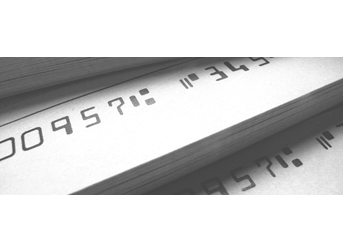Understanding ABA Routing Numbers: FAQs and Information
When it comes to banking and financial transactions, ABA routing numbers play a crucial role in ensuring seamless transfers of funds. Whether you're setting up direct deposits, wiring money, or initiating electronic payments, understanding ABA routing numbers is essential.
In this comprehensive guide, we'll address some of the most commonly asked questions about ABA routing numbers, providing you with insights and information to navigate the world of financial transactions.

What is an ABA Routing Number?
An ABA routing number, also known as a routing transit number or RTN, is a nine-digit numerical code used to identify financial institutions within the United States. It plays a crucial role in various financial transactions, such as electronic funds transfers, direct deposits, and bill payments.
ABA routing numbers help ensure that funds are accurately and securely routed to the intended recipient's bank or credit union.


ABA routing numbers are assigned by the American Bankers Association (ABA) and are unique to each financial institution. They serve as an essential identifier in the banking system, facilitating the smooth transfer of funds between different banks and financial entities.
Financial institutions use ABA routing numbers to:
- Process electronic payments and transfers.
- Facilitate direct deposits for payroll and benefits.
- Set up automated bill payments. Initiate wire transfers.
Overall, ABA routing numbers are a fundamental component of the U.S. banking infrastructure, enabling secure and efficient financial transactions.
Where Can I Find My Bank's ABA Routing Number?
Finding your bank's ABA routing number is relatively straightforward. It can be found in several locations:
- On your checks: Your bank's routing number is the first nine-digit number on the bottom left of your checks.
- Online banking: Your routing number is often displayed in your online banking account, under account details or settings.
- Bank's website: Find your routing number on your bank's website, in the FAQs or customer support sections.
- Customer service: Contact your bank's customer service representatives, who can provide you with your routing number.

When using your ABA routing number, ensure that you double-check the digits to avoid errors in your financial transactions. It's an essential piece of information that ensures your funds are directed accurately.

How Do ABA Routing Numbers Work?
ABA routing numbers work as unique identifiers for financial institutions in the United States. When you initiate a financial transaction, such as a direct deposit or electronic payment, the ABA routing number helps route the funds to the correct bank or credit union.
Here's how the process typically works:
Initiation: You provide your bank's ABA routing number, along with your account number, to the sending entity (e.g., your employer or a payment service).
Verification: The sending entity verifies the routing number to ensure its accuracy and validity.
Routing: The sending entity's bank uses the ABA routing number to route the transaction through the Automated Clearing House (ACH) network or other relevant payment systems.
Destination: The receiving bank uses the routing number to identify the recipient's financial institution and directs the funds to the appropriate account.
Overall, ABA routing numbers serve as a crucial intermediary in the process of transferring funds between different banks, ensuring that the right parties receive the money.
Are ABA Routing Numbers the Same for All Transactions?
Yes, in most cases, your bank's ABA routing number remains the same for various types of transactions. Whether you're setting up a direct deposit, making an electronic payment, or initiating a wire transfer, you'll use the same ABA routing number for your bank.
It's important to note that the ABA routing number is specific to your bank or credit union and serves as a unique identifier. While the routing number remains consistent, your account number, transaction details, and other information will vary based on the type of transaction you're conducting.

Using the correct ABA routing number is essential to ensure that your funds are directed accurately and promptly to the intended recipient.

Can an ABA Routing Number Change?
Yes, there are instances where an ABA routing number can change. However, these changes are relatively rare and typically occur due to certain circumstances:
- Merger or acquisition: If your bank merges with another financial institution or undergoes an acquisition, the resulting entity may have a new ABA routing number.
- Change of location: If your bank relocates its main operations to a different region, it might obtain a new routing number associated with the new location.
- Restructuring: Internal changes within the bank's organizational structure could lead to a new routing number.
Stay updated on your bank's ABA routing number changes, especially for frequent transactions. Confirm with official sources like the bank's website or customer service for the latest information.
What's the Difference Between ABA Routing Numbers and Account Numbers?
ABA routing numbers and account numbers serve distinct purposes in financial transactions. While ABA routing numbers help direct funds to the correct bank, account numbers ensure that the funds are allocated to the appropriate account within that bank.

ABA Routing Number:
- Identifies the financial institution where the account is held.
- Used to route funds between different banks or credit unions.
- Ensures accurate and secure transfer of funds.
- Does not change frequently and remains consistent for most transactions.
Account Number:
- Identifies the specific account within the financial institution.
- Used to locate and credit/debit funds to a particular account.
- Varies for different accounts held by the same individual or entity within the same bank.
- Used in conjunction with the routing number to complete transactions.
While ABA routing numbers help direct funds to the correct bank, account numbers ensure that the funds are allocated to the appropriate account within that bank.

Do I Need a Routing Number to Make an International Transfer?
The USA is the only country that uses Routing Numbers, even when receiving money from a foreign bank account. The majority of countries around the world rely on IBANs for their banks to receive payments from abroad.
However, if you wish to make an international bank transfer to a US account from a bank account outside the USA, you will need to provide their Routing Number in order for the funds to reach the account safely.
Alternatively, if you are receiving money to your US account from someone in another country, you will need to provide them with your Routing Number.
Receiving an incoming payment from abroad may also require you to provide the sender with your bank's BIC / SWIFT code. Read our full guide on BIC / SWIFT codes for everything you need to know and how to find them.
What Happens If I Use the Wrong ABA Routing Number?
Using the wrong ABA routing number in a financial transaction can lead to various outcomes:
- Delayed Transactions: Funds could be delayed or take longer to reach the intended recipient's account.
- Transaction Rejection: In some cases, the transaction might be rejected or returned if the routing number doesn't match the recipient's bank.
- Fund Misdirection: There's a risk that funds could be sent to the wrong bank or account if an incorrect routing number is used.
- Additional Fees: Some banks may charge fees for processing transactions with incorrect routing numbers.

To avoid these potential issues, always double-check the accuracy of the routing number before initiating any financial transactions. If you're unsure about the correct routing number, contact your bank's customer service for assistance.
Being In the Know About ABA Routing Numbers
Understanding ABA routing numbers is essential for anyone involved in financial transactions within the United States. These unique nine-digit codes play a critical role in ensuring the accurate and secure transfer of funds between banks and credit unions. From identifying your bank to facilitating direct deposits and electronic payments, ABA routing numbers are a fundamental component of the U.S. banking system.
By addressing the most commonly asked questions about ABA routing numbers, we've provided you with insights and information to navigate the intricacies of these essential identifiers. Remember to always use the correct routing number, exercise caution when sharing your information, and stay informed about any changes that may impact your financial transactions.
Whether you're managing your personal finances or handling business transactions, a clear understanding of ABA routing numbers empowers you to make informed decisions and ensure the smooth flow of funds.
To start sending money internationally, sign up for a Moneycorp account today.
Sign up


